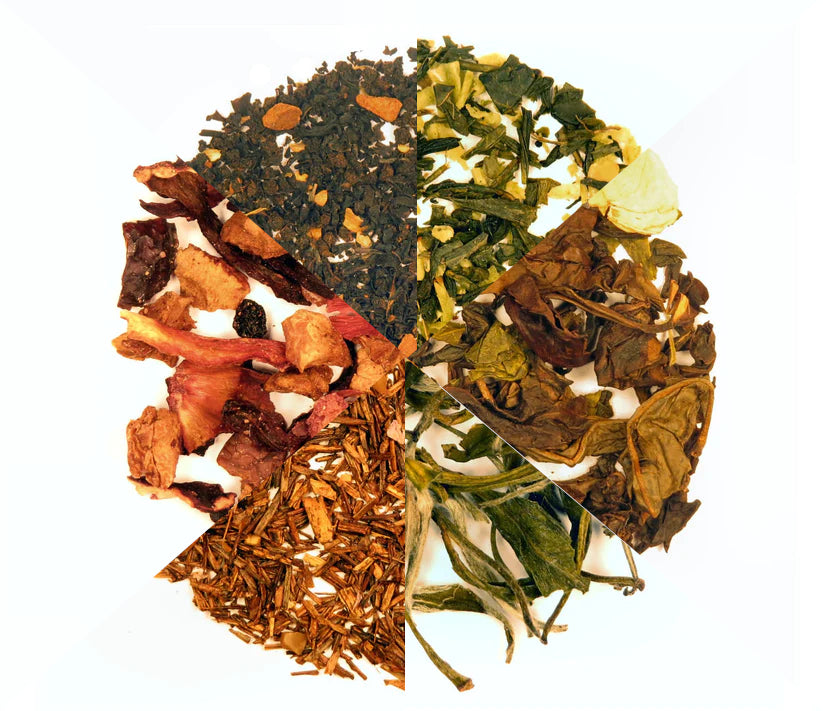Tea and Caffeine
Caffeine was first discovered in tea in 1827. It was once thought that caffeine in tea was different than in coffee, but it was later found that they were identical chemicals. While the caffeine chemical structure is the same in coffee and tea, the effects on the body can be quite different. There are several reasons why this difference occurs:
- There is much less caffeine in an average cup of tea compared to coffee, especially with green and white teas.
- An amino acid found only in tea, L-theanine, works to counteract the jittery effects of the caffeine without affecting the increase in alertness.
- The high levels of antioxidants found in tea help to slow the body's absorption of caffeine - allowing for a slower increase of caffeine entering into the blood stream. This eliminates the crash normally associated with energy drinks.
A common myth regarding caffeine content in coffee versus tea is that tea contains more caffeine than coffee. While this is true when measuring from a dry weight perspective, it's inaccurate when dealing with brewed coffee and tea. We normally only use 2 grams of tea per 6 ounce cup while 10 grams of coffee is used to brew the same quantity of water. A British study showed an average caffeine content(English style black tea) of 40mg vs 105mg in the average drip coffee brew.
The amount of caffeine in tea can depend on a number of factors, including the soil content, the altitude grown and the location. The younger leaves, or the highest point of the plant, yields the greatest concentrations of caffeine and antioxidants.
The greatest factor of caffeine content is actually due to the steeping process. The higher the water temperature, the greater the caffeine content. This is why black teas, which are typically steeped at near boiling, yield higher contents than white and green teas which are usually steeped at 175 to 180 degrees. The length of steeping also plays a major roll, with black teas steeping 3-5 minutes and white and green teas steeping at 1-3 minutes.
The caffeine contents of all tea types is relatively the same. It's commonly believed that the oxidation process that black tea undergoes increases the caffeine content, but this is false. There is no scientific study to show an increase in caffeine yield based off of oxidation.
It's unwise to make broad statements in regards to how much caffeine is in green tea vs black tea. The varieties used, growing methods and leaves selected can all make caffeine content vary drastically.
Keep in mind, also, that broken leaves steep faster than large loose leaf teas do. This is why bagged teas steep faster than loose. Very fine teas will also release caffeine faster than whole leaf teas such as silver needle.
The same amount of coffee can yield more than double the caffeine than a similar size of tea. Coffee is ground allowing for a very fast brew time.
Decaffeinated tea still contains 5-10 mg of caffeine per 6-8 oz cup. Keep this in mind if you are sensitive to caffeine, you may want to try herbal infusions such as rooibos or chamomile which are 100% naturally caffeine free.
Another common myth is that you can decaffeinate your own tea by steeping the leaves for 30 seconds, dumping out the liquor and steeping again. The truth is, caffeine steeps out slowly, with only 20-30% of caffeine content being removed in the first 1-2 minutes. The antioxidants tend to steep out faster than the caffeine, meaning that you're actually removing most of the health benefits and resulting in a cup that's still quiet caffeinated.
More tea fun:
What is tea?
Types of tea
Health benefits
Caffeine in tea
Iced tea
Packaging
Loose Leaf Tea over Teabags
FAQs

